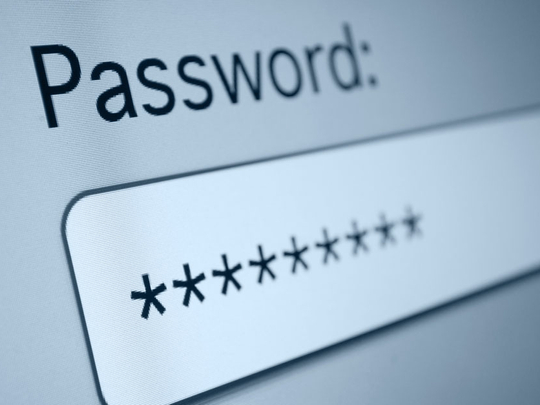
Communication today is all about networking, more than 80 per cent of which is online. The following tips to online security are essential to ensure protection of your virtual personal space and to avoid being scammed.
The UAE has a comprehensive set of laws and guidelines pertaining to social media use in the country. You can read the government’s White Papers here.
Also. read more about the new ransomware attacking IT systems in various countries here.
1. Passwords and privacy settings
Choose a strong alphanumeric password i.e one that includes both numbers and letters. Don't use your own name or any password that can be derived from your online details. Ensure that it is more than eight characters and also try and include special characters. Keep separate passwords for social media accounts and personal bank accounts, shopping accounts etc.
2. Accept “friend requests” from friends only
Social media sites are great for networking and meeting new people but knowing exactly what lies behind a profile picture is close to impossible. Networking is great, but you need to draw the line with regards to your privacy.
3. TMI – Too Much Information
TMI on social media can be plain old embarrassing or a prelude to cyber-crime. The information available online is usually more than sufficient to prepare an authentic application for credit products and services. You should not post pictures of your driver's license or ID cards online - if you absolutely need to, blur out the document number and key details before you do so.
You should not give out your address on social media, or say that no one will be home that weekend. Ensure that location settings on your phone are not on for your social media apps - unless you want to use it. Any information posted online stays online, so be sure to adjust your privacy settings to disable anyone who's not your friend from seeing that data.
4. Mentor your children
Technically children under the age of 14 aren’t allowed to use a number of social media sites or email providers, but that doesn’t stop them lying about their age to get online. They are susceptible to identity theft and psychological problems like anxiety, depression, and anti-social behavior. Parents shouldn’t hestitate to discuss online habits with children.
Mentoring vs. monitoring is the key for tech-savvy children today.
5. Always sign out of accounts
Remember to sign out of your email and social media accounts, especially at work, public cafés, and other areas where your information is at risk. Also do the same at home if you do not want your kids using your credentials to get online. Having an on-screen password is a basic security measure that is easy to set up.
6. Keep your personal and business accounts separate
While this may not be possible for everyone, you should ensure that your work email accounts are used for only professional purposes. The Ashley Madison case of 2015 is the perfect example of how bad things could go at a personal and organisational level through misuse of work email accounts. Nothing is completely secure on the internet and a little caution can go a long way.
7. Do not download!
Most scams begin with an email that may at first look authentic with an innocent attachment or shortened link. When you click download, you may be inadvertently downloading a password and data stealing software, or giving someone complete remote control over your device. Not to mention the risk of viruses.
The most simple thing to do is analyse the email ID of the sender - no company or authentic website will use a Google, Outlook or Yahoo email for business emails. Also look out for minor spelling differences in the email account - one letter could be the difference between a genuine sender and a phishing one.
In the office, never download any attachment unless you verify the sender through phone. For password change links or verification links that you didn't trigger, go directly to the concerned website and check it out before clicking on the link. If in doubt, consult your office IT manager. Be wary of any files with extensions of '.rar' or '.exe', verify with the sender and IT before downloading.
8. Cyber Bullies
Cyber bullies target victims through one or more of the above methods. They can know almost everything about you, and steal your identity or worse, control your devices. A 'good' cyber hacker can hack into your webcam on your laptop, taking cyber stalking to a whole new level.
The psychological effects of cyber bullying affect children, teens and young adults as they are the most susceptible to the threat. Protect your devices with certified anti-virus software and practice caution. If you are a victim of online bullying, inform and report the same to the UAE’s cyber authority: Cyber C3.
9. Cyber C3
Cyber C3 is an “Acceptable Usage Policy” universal certification program, used by the UAE government, aimed at educating residents and citizens about acceptable and law-abiding online practice. It focuses on learning how to stay safe online. You can report cyber crimes and also get private advice on how to deal with such crimes on their website here.
10. Incognito surfing and history
When surfing, use an incognito mode on your mobile devices and desktop - this will not let your search results or details of visited websites get saved. Using search websites like DuckDuckGo, an incognito search browser similar to Google, can help protect your search details and also avoid getting bombarded with ads on Facebook and other related sites. Clear your cache and history files before and after you use banking websites.
11. Get online!
Today, having a good online presence can help you land the perfect job, or market your business, or simply help you create and maintain great relationships. Not being online is not an option, but being safe online is.
Don’t forget to get social and share these tips!












